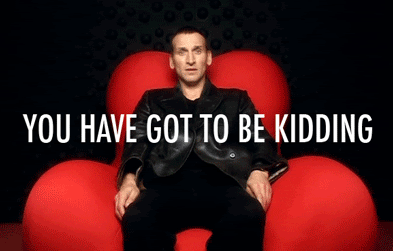I may as well get it out there and just say no. Doctors are backing future industrial action and are refusing to accept the new changes to their professions without a fight. Of course, it’s all about pensions where they will have to put in more to get less out. In theory, it’s upsetting as they had a deal, but in reality they are still getting almost £50,000 a year as part of their pension plans. However, with the British Medical Association now calling for the health secretary Andrew Lansley to resign, things only look like they are going to get worse.

Let’s look at the way doctors take industrial action. They take industrial action by refusing to carry out non-emergency care. So they still go into work, but instead of doing most of their work they just sit around and do nothing. It’s almost like a passive form of resistance or a slow-down, as some call it. Does it put the public in danger? No. Does it irritate the hell out of people who might have had their operations delayed for months because of it? Yes.
So can doctors do anything?
Any successful strike either has to have popular support or power. Doctors have the power as they can simply refuse to care for people any longer, which would have massive consequences. However, we all know, and health secretary Andrew Lansley also knows, that they won’t do this. Even with the recent industrial action not all doctors supported it as they believed that the general public shouldn’t suffer because of any dispute they had. Ok, so the doctors have power that they can’t use. That’s that out of the way.
Do they have popular support?
It really depends on who you ask about popular support as there will be differing opinions. You ask the government and they will say no, which they’ve actually said on live TV as part of BBC News. If you ask a doctor who wants to go on strike then the doctor will not really answer the question. Instead they’ll just talk about fairness for the next five minutes. So, no, they don’t have popular support. What they don’t realise is that people don’t care about your £50,000-a-year pension. To most people, this is an absolutely fantastic pension, regardless of what happened to change. And people won’t have their healthcare disrupted over a dispute like this. Fairness, in the eyes of doctors, has to come through mass disruption. And people are simply not interested in that.

So doctors can’t really do anything at all as they don’t have either of the key things they need to produce a successful strike. As for whether they are correct, well that’s up to you to decide. In my opinion, they are only correct because they already signed a deal. Doctors who were already in the profession when that original deal was signed, I believe, should be kept under that deal. The new changes from health secretary Andrew Lansley should only apply to new doctors who will be entering the profession. Yes, doctors will argue that they deserve those massive pensions, but a few more years training than everybody else shouldn’t entitle you to that much when everybody else has to suffer.
Why should you be an exception?